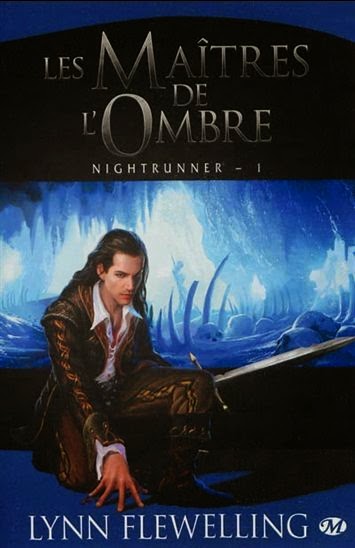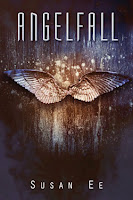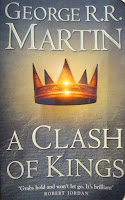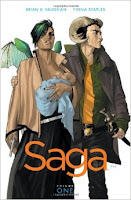E. M. Forster
A Passage to India
1924
This is only a passage, indeed, one route at the end of which there is no single truth to rely on. There is no British India without Indians in this work and you are asked to empathise with their multiple faces as Indians and as people, rather than revealed "the truth" about India under the British Raj.
Though ever so present, the writer never takes over the story but lets the characters play it for you. Forster creates a fantastical, yet subtle, Dr. Aziz that he clearly loves. You respect him, you feel for him after the first few sentences and
you know it's his shine that will carry the story. With an uncomplicated, slightly ironic style, A Passage delivers beauty of form and content that is at times subdued, at times overt, a mélange of spirituality and profound realism, a balance between the Oneness that belittles our performances and the importance of those little selves. A balance between Forster's message 'Only connect...' and the road of racial prejudices and ambivalences it takes to get there. 'Only connect' but do not negotiate the underlying truth of colonialism. A Passage to India judges without saying so.
P.S. Forster's 'Only Connect...' was the epigraph of Howards End.
Tags: feminist representation of the housewife, early 20th century, a little of that ladies & gents' courtship dance, social castes of British India, racial intercourse under the British Raj, hypocrisy of codes of conduct, drama in close quarters, mystical take on destiny, religion, Islam, Hinduism and India, hints of more than platonic homosociality, colonialism and independence, religious mysticism, national identity and Britishness, race and friendship, Oneness vs. selves..., or is it?, Overpowering nature
AUTEURS' LIBRARY
Austen Jane
(1)
Barrie J. M.
(1)
Bowen Elizabeth
(1)
Cooper James Fenimore
(2)
Cronin A.J.
(2)
Dostoyevsky Fyodor
(1)
Ee Susan
(2)
Farland David
(1)
Fitzgerald F. Scott
(1)
Flewelling Lynn
(1)
Forster E. M.
(2)
Gaskell Elizabeth
(1)
Golding William
(1)
Grahame Kenneth
(1)
Harpman Jacqueline
(3)
Hobb Robin
(5)
Ishiguro Kazuo
(1)
Le Guin Ursula K.
(2)
London Jack
(1)
Martin George R. R.
(3)
Melville Herman
(1)
Murail Marie-Aude
(1)
Ngῦgῖ wa Thiong’o
(1)
Pilcher Rosamunde
(1)
Ryan Anthony
(2)
Salinger J. D.
(1)
Shaw George Bernard
(2)
Stegner Wallace
(2)
Steinbeck John
(1)
Stevenson Robert Louis
(2)
Tarkington Booth
(1)
Vaughan Brian K.
(1)
Webb Mary
(2)
Wharton Edith
(1)
Tuesday 21 October 2014
Thursday 16 October 2014
Auteur's library
 William
Golding
William
Golding
Lord of the
Flies
1954
This is not the kind of book you could ever like reading: it’s not pleasant, feels as if it's not meant to be so. It’s that one necessary stone in the wall of your education. Going through each scene is like a dare, unnerving, frighteningly thrilling. You feel the next drama coming round the corner, you fervently turn the pages and tell yourself it's just to be done with it, leave that godforsaken island behind you.
The book really shook me, though I never managed to love the characters. I couldn’t help but hope they would be saved, all the while wishing those evil kids’d be dead, already. It is impossible not to hate them but it’s equally as hard, I find, to let go of them.
As Golding blurs the
lines between sanity and madness, wrongness and evil, the characters'
distinctiveness is forgotten 'til they all embody the figure of 'the
boy', or more simply 'the human', in its most banal, yet scariest form. This is where Golding truly nails it: this, the subdued but powerful writing whispers, this could be you.
P.S. The N-word is present around page 200. and used by a kid for a nasty comparison between disorder and order, “savages” and Englishmen.
P.S. The N-word is present around page 200. and used by a kid for a nasty comparison between disorder and order, “savages” and Englishmen.
Sunday 12 October 2014
Auteur's library
The Runelords
The Sum of
All Men. I.
1998
1998
A good
book, one that I would have loved to love, but ultimately couldn’t.
First, the racial divide: the “Arabic” people are uniformly hard, servile and stupid_ the bad asses of the tale_ while the Whites are in 3D, with varied personalities_ the victims. If fantasy is to represent the physical and cultural races of our world so obviously, then it may want to show some respect in doing so and grant each and every one human with credibility. Too often did this first volume read like a nod at the great patriotic flag of whiteness.
Beyond this, imagine the board of a fantasy game with great obstacles, cards of power, heroes and foes, and a complete inventive lore at hand to make you truly get into it. The systems of endowments, the Days, and the House of Understanding work to form a clever and deep context that really sets the story going. Too bad, then, that in this first book Farland never tackles them too seriously. From one adventure in the woods to the next, the pages read fast, too fast to let you ponder the underdevelopments and the character complexity that should have necessarily flowed from them, yet didn’t. All in all, The Sum of All Men lays the ground for achieving an emotional and philosophical masterpiece, but never reaches.
First, the racial divide: the “Arabic” people are uniformly hard, servile and stupid_ the bad asses of the tale_ while the Whites are in 3D, with varied personalities_ the victims. If fantasy is to represent the physical and cultural races of our world so obviously, then it may want to show some respect in doing so and grant each and every one human with credibility. Too often did this first volume read like a nod at the great patriotic flag of whiteness.
Beyond this, imagine the board of a fantasy game with great obstacles, cards of power, heroes and foes, and a complete inventive lore at hand to make you truly get into it. The systems of endowments, the Days, and the House of Understanding work to form a clever and deep context that really sets the story going. Too bad, then, that in this first book Farland never tackles them too seriously. From one adventure in the woods to the next, the pages read fast, too fast to let you ponder the underdevelopments and the character complexity that should have necessarily flowed from them, yet didn’t. All in all, The Sum of All Men lays the ground for achieving an emotional and philosophical masterpiece, but never reaches.
P.S. That
Iome character is one insufferable girl. 5 pages after meeting her, I started
to call her ‘Princess Useless’.
Subscribe to:
Posts (Atom)










